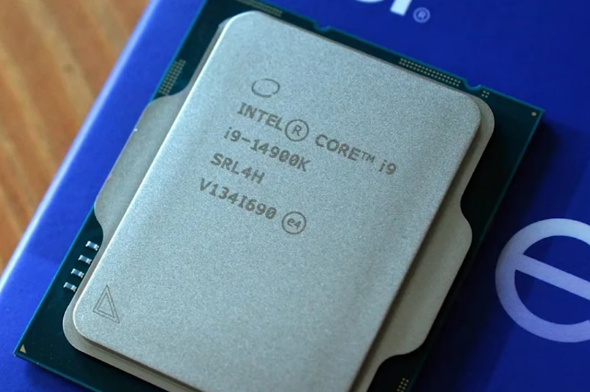Connection to DriversCloud Create a DriversCloud.com account Reset your DriversCloud.com password Account migration
Raptor Lake Refresh: Intel's 14th-generation refresh?
The first leaks from Intel's 14th-generation flagship don't seem to change much from the 13900K, which didn't exactly revolutionize the 12900K.
In the world of microprocessors, you can sometimes get lost. Regardless of the manufacturer, references, generations and ranges are not always crystal-clear, but here Intel seems to take great pleasure in blurring the lines. First, it announced that the generation following Raptor Lake (released last year) would be Meteor Lake. At the same time, it announced a minor revolution, with a complete overhaul of the architecture and the adoption of a new support for the processor, the LGA1851 with - this, at least, is logical - 1851 pins. But since these initial announcements, a lot has happened. Firstly, Intel has decided to completely rethink the way it names its processors, in order to " make the names clearer ". Time will tell whether users will find this clearer, but in the meantime, it's making things less readable, even though we've become accustomed to these Core i3s, Core i5s, Core i7s and Core i9s.
To make things even more complicated, Intel has finally changed its tune, explaining that the Meteor Lake generation will make do with "low-power" chips, and will therefore be aimed more clearly at the notebook market. In fact, no Meteor Lake-S - the desktop variant - is expected, and Intel explains that the revolution in this segment will wait until next year, with the release of the Arrow Lake generation in the second half of 2024. Things could have stopped there, but Intel doesn't seem prepared to let an autumn go by without a new desktop processor. The company has therefore come up with this 14th generation, dubbed Raptor Lake Refresh, which will take the basics of Raptor Lake and optimize them to produce more interesting processors. But while Meteor Lake introduces Intel's new nomenclature, Raptor Lake Refresh sticks to the old one: in the end, we'll still have a series of Core i3s, Core i5s, Core i7s and Core i9s!
The most powerful of this "new" range should be the Core i9-14900K which, at least on paper, looks like a slightly boosted 13900K. It too features 8 high-performance cores and 16 efficient cores. More importantly, the cores in question appear to be of the same generation: Raptor Cove for the high-performance cores and Gracemont for the efficient ones. There are still a few questions surrounding this 14900K, but it seems likely to have the same amount of cache memory and, the latest information to date, to run at a slightly higher frequency than the 13900K: 3.2 GHz (vs. 3 GHz) base and 6 GHz (vs. 5.8 GHz) boost. For Intel, the release of this 14th generation would therefore seem to be limited to a mere 200 MHz increase in CPU speed? That's what the most recent leaks seem to confirm, coming from the databases of a well-known tool, Geekbench.
Here, the 14900K has had its portrait taken and, with this first description of the chip, the first performance measurements have also arrived: in single-core, it reaches 3,121 points, making this 14900K the best consumer chip ever marketed by Intel. In multi-core, however, the story is very different: with "only" 19,032 points, the 14900K is beaten by the 13900KS, a special edition that was not widely distributed, and also by the 13900K. It's a result we can't explain, even if we do have to keep a certain distance from measurements we can't verify. Let's hope that, before the release of this Raptor Lake Refresh range scheduled for October, Intel has the means to optimize all this so that the ultimate generation of Core i3, Core i5, Core i7 and Core i9 won't be a damp squib.








